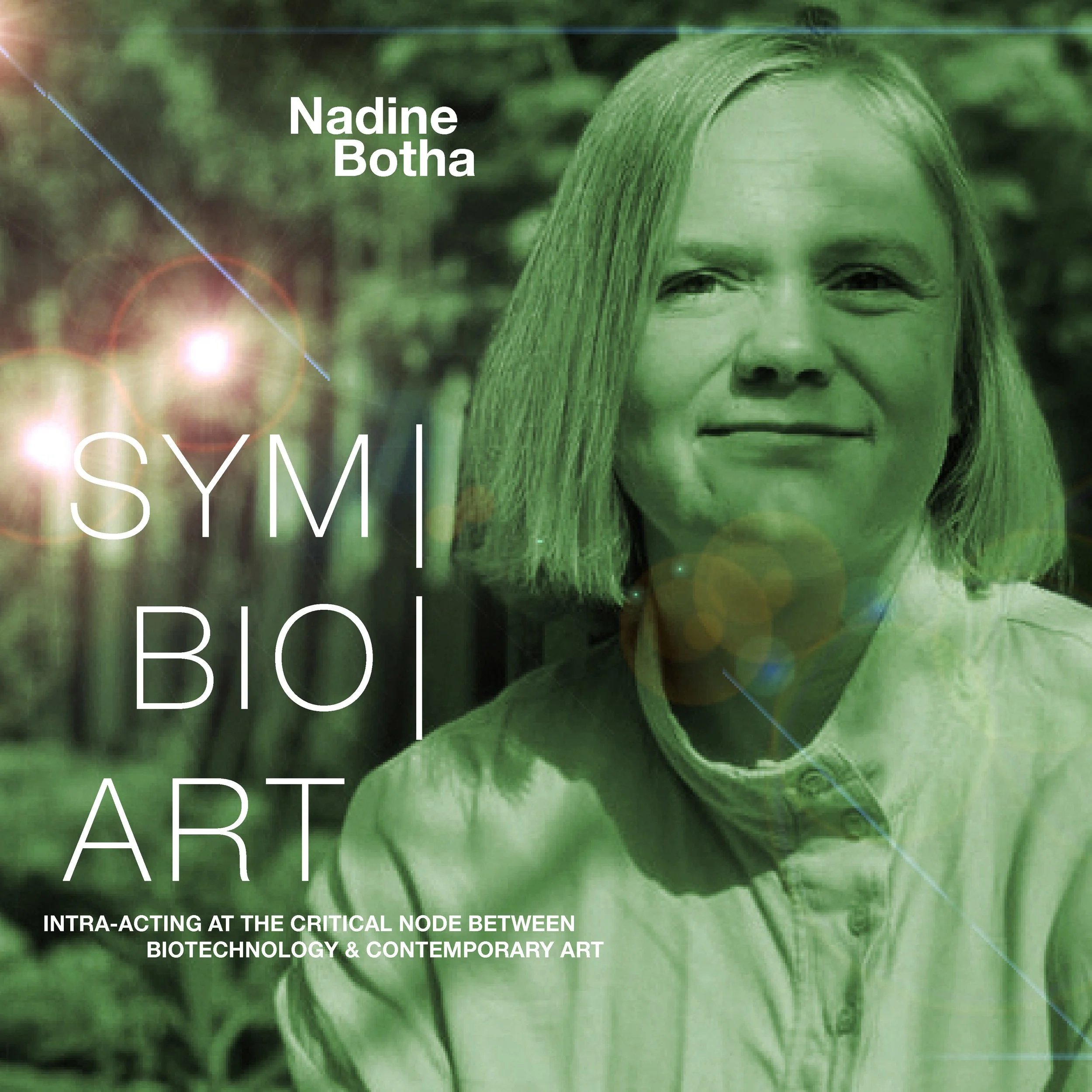Nadine Botha
Nadine Botha is an independent research designer preoccupied with how unseen social, political, legal, economic and cultural systems design our objects, bodies, homes, cities, technologies, experiences and knowledges. Her practice brings together storytelling, curating, writing, performance, activism, media analysis, and participatory practices in exhibitions, digital media, events, publications, workshops, journalism, and academia. She is a winner of a 2020 Bio Art and Design Award from MU Hybrid Art House, and was awarded a 2019–2020 Talent Development Grant from the Creative Industries Fund. In 2018 she was associate curator of the 4th Istanbul Design Biennale—A School of Schools. She graduated from the Design Academy Eindhoven in 2017, receiving the Gijs Bakker Award for best Master’s project. She has contributed to numerous books, and her writing has been published widely. While editor of Design Indaba from 2007–2012, the magazine was recognised in the Top 100 Most Innovative Publications in the World.
On SYM | BIO | ART
What do we learn about infectious disease, mortality and modernity/coloniality from zombie mythology? Through ongoing review and analysis of key zombie movies, games, literature and other pop culture media, The Orders of the Undead highlights how ideas and behaviour that originate in colonialism continue to be propagated in our entertainment media and replicated in everyday prejudices. The result of a collaboration between research designer Nadine Botha and skin infections specialist Henry de Vries, the initial research was presented in an installation of four short films at MU Hybrid Art House until 9 May 2021. How these prejudices order society becomes magnified under the stress of epidemics and pandemics, and despite being repeatedly debunked scientifically and socially, continue to replicate faster than one can shoot them down — just like the undead. Some undead orders are outlandishly obvious — such as vaccination causing autism and race being a biological feature — while other undead orders are so embedded, that we may not notice them at first, and have no idea how to uproot them — such as the economic quantification of human life, and the war-like language and metaphors of contagion that are used to ‘other’ and oppress different people and organisms. Yet other undead orders are deep-seated existential anxieties such as the individual’s role in the collective, personal survival, the end of the world and a desire for a greater transcendental explanation for calamities. Is the fearmongering zombie itself an undead idea that no longer serves its purpose, or is it a mythology through which we process our fear of death, disease, apocalypse and the irrational? This is the research question as the project turned to social media, inviting people to use three custom-made Instagram filters to observe and express how the undead orders propagated in zombie films appear in our daily lived experience.
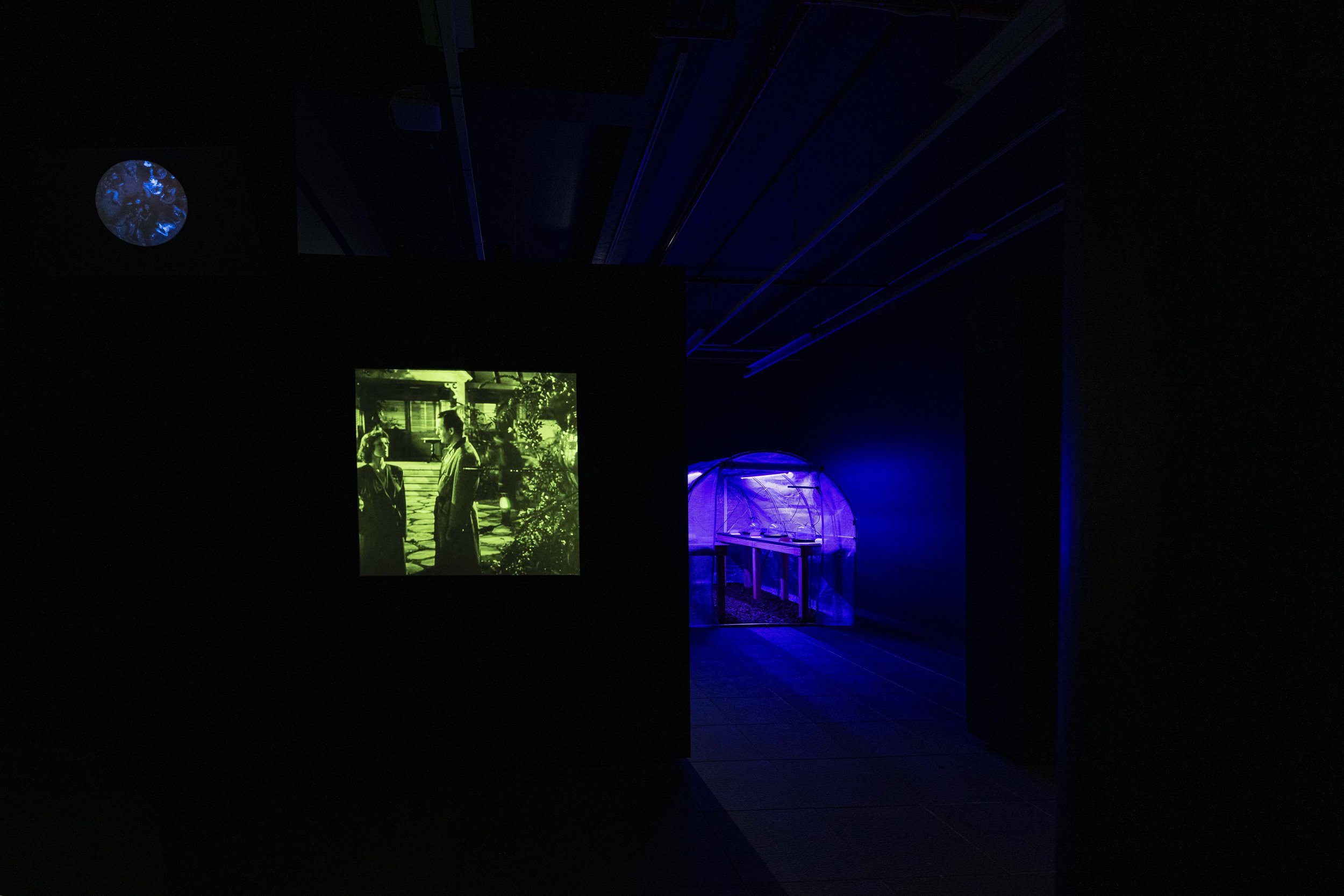
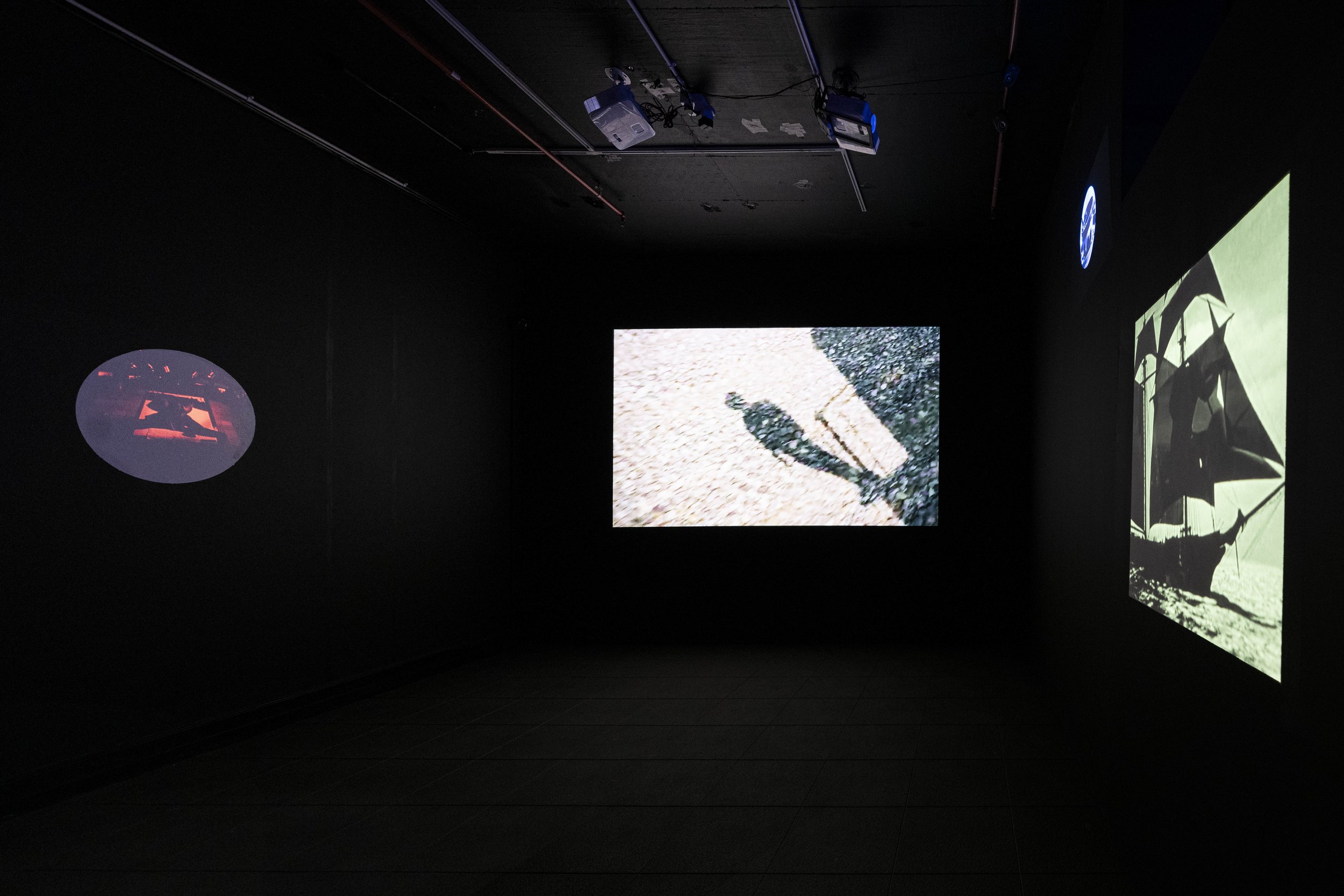
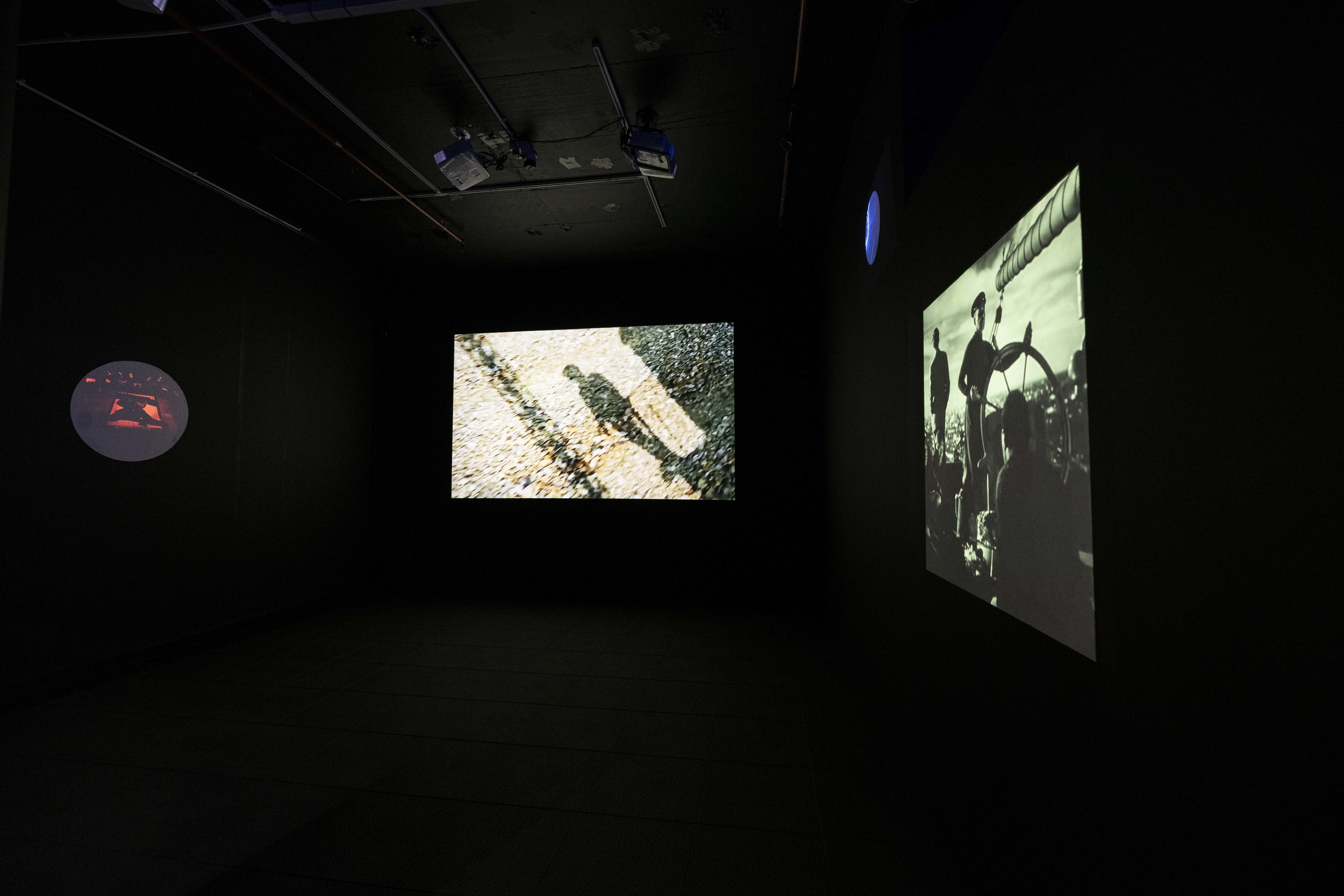
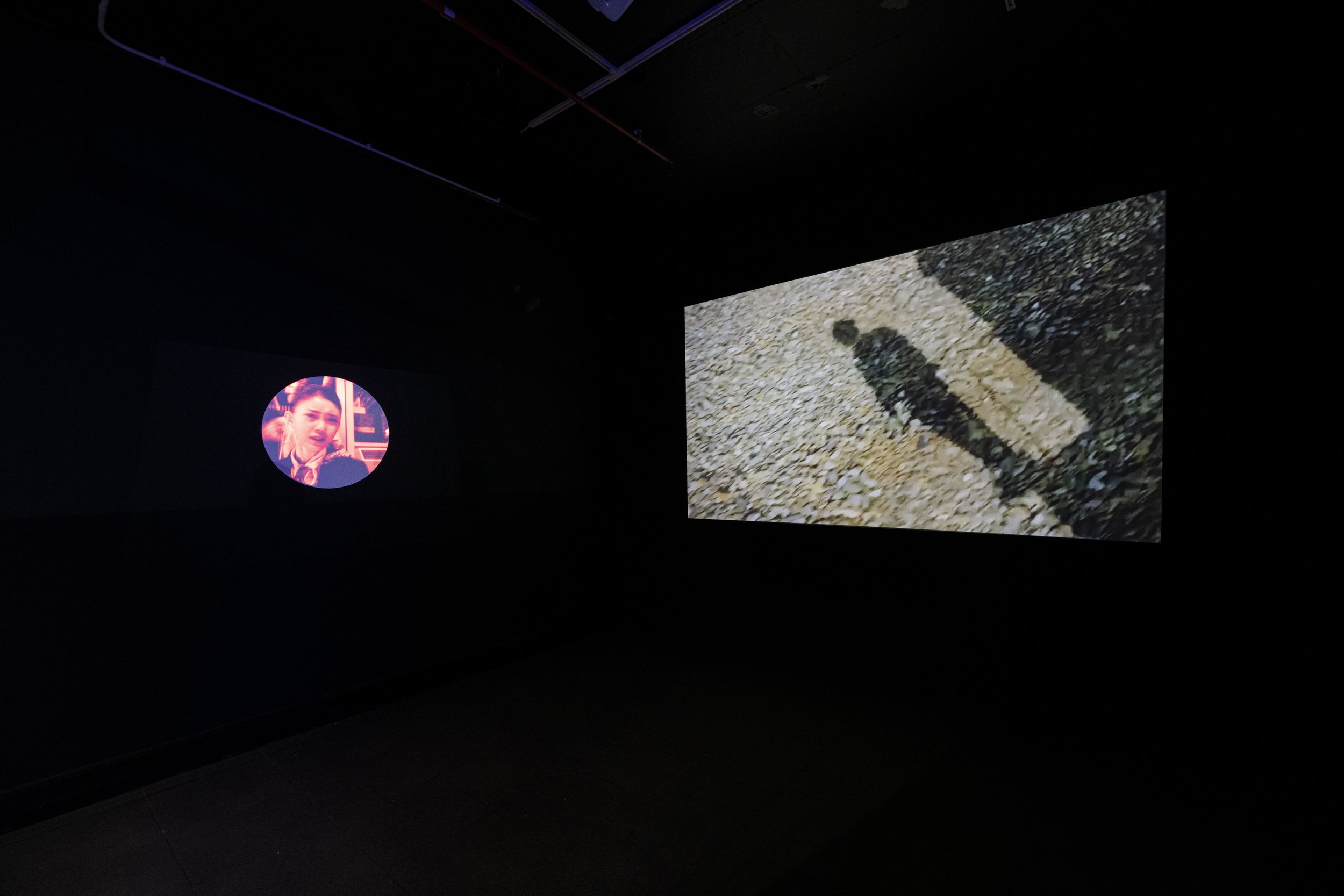
Nadine Botha, The Orders of the Undead (2020), Four-channel video installation with sound; Dimensions variable


